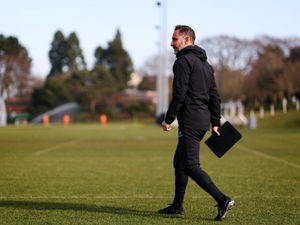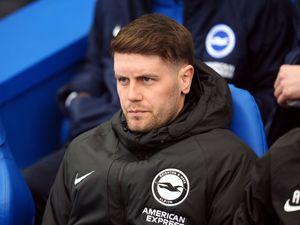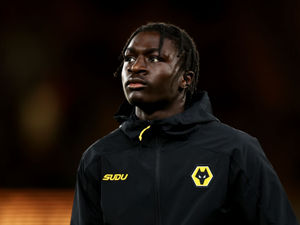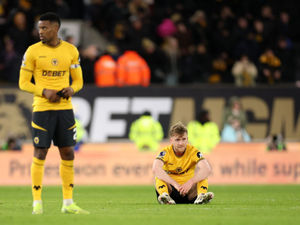Our Billy Wright... by those who knew him
When former Wolves director John Harris married his wife Margaret, Billy Wright brought the couple a present in a Tesco carrier bag.
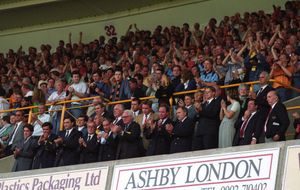
It was a precious England cap, one of his record-breaking 105. An incredible gift for the happy couple.
When Laura, the young daughter of Wolves chairman Jonathan Hayward, opened up a new autograph book for Wright to kick off, he told her that she was starting with a ‘nobody’, and, ‘it can only get better from here’!
Former Wolves striker Ted Farmer once attended a Lord’s Taverners cricket match at Stourbridge with his family, only for his young daughter to be crying in her pram due to the noise from a band playing by the side of the pitch.
Wright politely asked them to stop. Which they did.
And when Steve Bull and Andy Thompson had the television on rather too loudly into the early hours on a pre-season trip, and Wright, in the room next door, asked them to turn it down, the next day it was he – Wright - that apologised.
Tuesday marked what would have been the 100th birthday of the Wolves and England legend, one of football’s finest, and the Express & Star marked the occasion by looking back on some of Wright’s remarkable achievements, as well as the informative words of Steve Gordos about what exactly it was like to watch the great man play.
And now? Well, as a follow-up to those excellent reflections, this is a look back at the life and times of William Ambrose Wright CBE through the eyes of others.
Through a couple of young team-mates who looked up to him for inspiration, a couple of Wolves legends who followed in his illustrious footsteps, a couple of leading figures who were with him on the club’s Board and, perhaps best of all, a devoted fan who remains immensely touched to have a treasured memento which he always brings out for special occasions. A heart as gold as the team which he graced.
‘People will forget what you said, and people will forget what you did,’ begins the famous quote from American poet and civil rights activist Maya Angelou.
‘But they will never forget how you made them feel.’
And, how did Billy Wright make people feel?
Two prolific Wolves goal-grabbers who followed in Wright’s footsteps as Molineux legends are unequivocal.
“Billy was a lovely guy, very quiet, unassuming,” says John Richards.
“He didn’t like to talk much about himself, he was more interested in other people and what was going on at Wolves after him.
“Anyone you speak to will always speak very highly of Billy and rightly so – he was a fantastic man.”
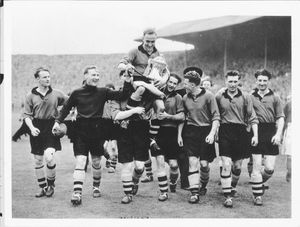
“Billy was a very good friend of mine and a lovely man,” echoes Steve Bull, who was helped by Wright to move into the media at the end of his record-breaking Wolves career.
“He was a gentleman, on and off the pitch, and just a great bloke in every way.”
For Hayward, who became chairman of Wolves in 1992, it was a huge honour sitting on the Board with Wright alongside his father Sir Jack, and Harris and his father Jack.
“Of all the many different things that happened as Wolves, and indeed the stressful aspects, Billy was the most wonderful person to have ever met,” Hayward recalls.
“He was quite special in every way, an absolute delight.
“He was always the first to ring the family up on Christmas Day when we were farming up in Northumberland.
“And the story about him signing Laura’s autograph book and calling himself a ‘nobody’ just sums him up. She was very young at the time and I remember having to tell her it probably wasn’t going to get much better than that and that it was one of the most precious autographs she could have in the world!
“I will also never forget doing a duet with Billy, singing Moon River on a karaoke machine at the end of one of the pre-season tours – a very find memory and one I couldn’t quite believe was taking place!”
Wright’s playing career has, perhaps more so than his karaoke skills, quite rightly been documented in infinite detail and with so much respect and admiration down the years.
It’s a magnificent story which has been well-told.
How, born in Ironbridge, he first came to Wolves after answering a newspaper advert at the age of 14, and when manager Major Frank Buckley felt he was too small to forge a career at the club, trainer Jack Davies fought his corner – and he stayed.
How, then transferred from right half (right midfield) to centre half, and using a prodigious leap to defy those lack of inches, and an incredible ability to read the game, he became captain for both club and country.
“I decided early on that captaincy is the art of leadership, not dictatorship,” said the often quiet and mild-mannered personality. “Respect is the hardest thing for a captain to come by and the easiest to lose.”
How he then led Wolves to the only three top-flight titles in their history in those fabulous Fifties, as well as the 1949 FA Cup, and, proudly wearing the Three Lions, became the first in world football to achieve 100 international caps, eventually finishing on 105 appearances for England, 90 of those wearing the armband.
Wright remained indebted to the work of his managers, Buckley and the equally legendary Stan Cullis, for the successes of his career, and was part of that never-to-be-surpassed group of Wolves players whose history and legacy will never be forgotten.
But also, as Wright came to the end of his own career, he too helped others, as younger talent emerged to the fore.
“I was Billy’s boot boy, and he was great with me,” said winger Terry Wharton.

